Sleep apnea, a prevalent sleep disturbance, impacts millions globally. It causes pauses in breathing or shallow breathing during sleep, which can lead to daytime sleepiness, snoring, and other health problems. One of the possible causes of sleep apnea is enlarged adenoids, which are glands located behind the nose and above the tonsils. In this blog post, we will explain what adenoids are, how they can cause sleep apnea, and how adenoid removal surgery can help treat this condition. We will also cover the benefits, risks, and recovery of adenoid removal surgery, as well as some alternative treatments for sleep apnea.
- What are adenoids and how do they affect sleep?
- How is sleep apnea diagnosed and treated?
- What is adenoid removal surgery and how does it work?
- What are the benefits of adenoid removal surgery?
- What are the risks and complications of adenoid removal surgery?
- How to recover from adenoid removal surgery?
- What are some alternative treatments for sleep apnea?
- Conclusion
What are adenoids and how do they affect sleep?
Adenoids are part of the immune system that help fight off infections. They trap germs that enter the nose before they can cause illness. However, sometimes the adenoids can become swollen or infected, which can make them larger than normal. This can block the airway and interfere with breathing, especially during sleep. Enlarged adenoids can also affect the eustachian tube, which connects the ears to the nose and drains fluid from the middle ear. This can lead to ear infections and hearing problems.
Some of the symptoms of enlarged adenoids include:
- Breathing through the mouth frequently
- Having a stuffy or runny nose without illness
- Having a dry mouth and cracked lips
- Having noisy breathing or a nasal-sounding voice
- Snoring or having pauses in breathing during sleep
- Having poor quality sleep or daytime sleepiness
- Having frequent or persistent ear infections
- Having behavior or learning difficulties due to lack of sleep
Enlarged adenoids are more common in children than in adults, because the adenoids tend to shrink as people grow older. However, some adults may still have enlarged adenoids that cause sleep apnea or other problems.

How is sleep apnea diagnosed and treated?
If you or your child have symptoms of sleep apnea, you should see a doctor for a proper diagnosis and treatment. The doctor will ask about your medical history, examine your throat and nose, and perform some tests to measure your breathing and oxygen levels during sleep. These tests may include:
- A sleep study, which records your brain activity, heart rate, blood pressure, and breathing patterns while you sleep in a lab or at home.
- A nasal endoscopy, which uses a thin tube with a camera to look inside your nose and throat.
- A CT scan or an MRI, which use X-rays or magnetic fields to create images of your head and neck.
Depending on the severity and cause of your sleep apnea, the doctor may recommend one or more of the following treatments:
- Lifestyle changes, such as losing weight, quitting smoking, avoiding alcohol, sleeping on your side, and using nasal sprays or strips to open up your airway.
- Continuous positive airway pressure (CPAP) therapy, which uses a machine that delivers air through a mask to keep your airway open while you sleep.
- Oral appliances, which are devices that fit in your mouth and adjust your jaw position to improve your breathing.
- Surgery, which involves removing or modifying the tissues that block your airway, such as the tonsils, the uvula, the soft palate, or the adenoids.
What is adenoid removal surgery and how does it work?
Adenoid removal surgery, also known as adenoidectomy, is a procedure that involves removing the adenoids through the mouth. It is usually done under general anesthesia, which means you will be asleep and not feel any pain. The surgery takes about 30 minutes to an hour, and most people can go home the same day.
The surgeon will use a special instrument to cut or cauterize the adenoids and stop any bleeding. Sometimes, the tonsils are also removed at the same time, which is called a tonsillectomy. The surgeon may also perform other procedures to treat sleep apnea, such as a septoplasty, which corrects a deviated nasal septum, or a turbinate reduction, which shrinks the swollen tissues inside the nose.

What are the benefits of adenoid removal surgery?
Adenoid removal surgery can improve your breathing and sleep quality by opening up your airway and reducing the inflammation and infection in your nose and throat. Some of the benefits of adenoid removal surgery include:
- Reducing or eliminating snoring and sleep apnea
- Reducing or eliminating ear infections and hearing problems
- Reducing or eliminating nasal congestion and mouth breathing
- Improving your voice quality and speech clarity
- Improving your mood, energy, and concentration
- Reducing your risk of developing cardiovascular diseases, such as high blood pressure, stroke, and heart attack
What are the risks and complications of adenoid removal surgery?
As with any surgery, adenoid removal surgery has some risks and complications that you should be aware of before deciding to undergo the procedure. Some potential hazards and complexities encompass:
- Bleeding, which can occur during or after the surgery and may require additional treatment or surgery
- Infection, which can occur in the wound or in the ear and may require antibiotics or drainage
- Pain, which can be mild to severe and may require painkillers or ice packs
- Swelling, which can occur in the throat or the tongue and may cause difficulty breathing or swallowing
- Nausea and vomiting, which can occur due to the anesthesia or the painkillers and may cause dehydration or aspiration
- Dehydration, which can occur due to the loss of fluids or the difficulty drinking and may cause dry mouth, headache, or dizziness
- Fever, which can occur due to the infection or the inflammation and may require antipyretics or fluids
- Voice change, which can occur due to the removal of the adenoids and may cause a higher-pitched or more nasal-sounding voice
- Regrowth, which can occur if some of the adenoid tissue is left behind and may cause the symptoms to recur
How to recover from adenoid removal surgery?
The recovery from adenoid removal surgery varies from person to person, depending on the extent of the surgery and the individual’s health condition. However, some general tips to help you recover faster and better include:
- Resting and avoiding strenuous activities for at least a week after the surgery
- Drinking plenty of fluids and eating soft foods to prevent dehydration and irritation
- Avoiding spicy, acidic, or crunchy foods that can cause pain or bleeding
- Avoiding smoking, alcohol, or caffeine that can delay healing or cause dehydration
- Gargling with salt water or using a humidifier to soothe your throat and prevent dryness
- Taking painkillers or anti-inflammatory drugs as prescribed by your doctor to relieve pain or swelling
- Following your doctor’s instructions on how to care for your wound and when to resume your normal activities
- Seeking medical attention if you experience any signs of complications, such as excessive bleeding, fever, difficulty breathing, or severe pain
What are some alternative treatments for sleep apnea?
If you are not a good candidate for adenoid removal surgery or if you prefer not to have surgery, there are some alternative treatments that you can try to treat your sleep apnea. Some of these include:
- CPAP therapy, which is the most common and effective treatment for sleep apnea, as mentioned above
- Oral appliances, which are also effective for mild to moderate sleep apnea, as mentioned above
- Positional therapy, which involves wearing a device that prevents you from sleeping on your back and encourages you to sleep on your side or stomach
- Weight loss, which can reduce the fat tissue around your neck and improve your breathing
- Yoga, which can strengthen your respiratory muscles and improve your oxygen levels
- Acupuncture, which can stimulate the nerves and muscles that control your breathing
- Herbal remedies, which can reduce inflammation and congestion in your nose and throat
However, before trying any of these alternative treatments, you should consult your doctor and make sure they are safe and suitable for you.
Conclusion
Sleep apnea is a serious condition that can affect your health and quality of life. One of the possible causes of sleep apnea is enlarged adenoids, which can block your airway and interfere with your breathing. Adenoid removal surgery is a procedure that can help treat sleep apnea by removing the adenoids and opening up your airway. It can also improve your ear, nose, and throat health and reduce your risk of developing other diseases. However, adenoid removal surgery also has some risks and complications that you should be aware of before deciding to undergo the procedure. You should also follow the proper recovery guidelines and seek medical attention if you experience any problems. Alternatively, you can try some other treatments for sleep apnea, such as CPAP therapy, oral appliances, or lifestyle changes, depending on your preference and suitability.
Important Notice:
The information provided on “health life ai” is intended for informational purposes only. While we have made efforts to ensure the accuracy and authenticity of the information presented, we cannot guarantee its absolute correctness or completeness. Before applying any of the strategies or tips, please consult a professional medical adviser.
















2 comments
Having the opportunity to read everything in one place is a delight for me; this is my very first, brief visit.
Woah! I’m really digging the template/theme of this website.
It’s simple, yet effective. A lot of times it’s hard to get that “perfect balance” between usability and visual appearance.
I must say you’ve done a awesome job with this. Also, the blog loads very fast for me on Chrome.
Excellent Blog!